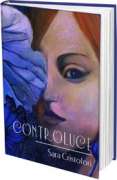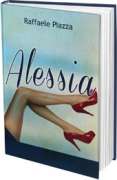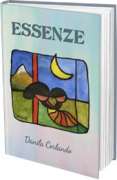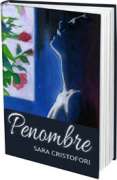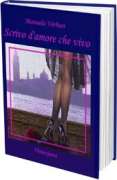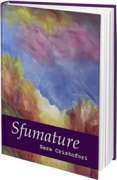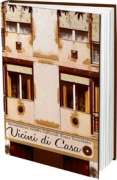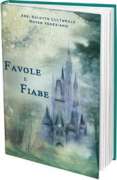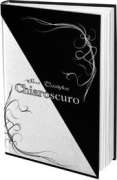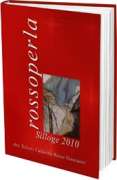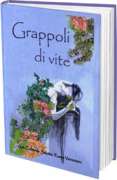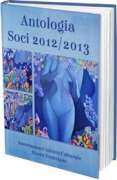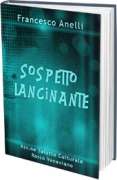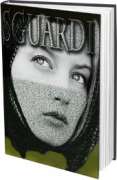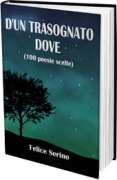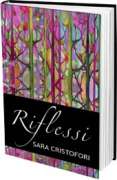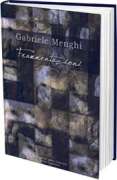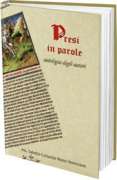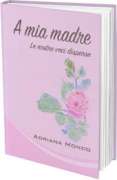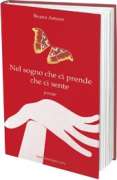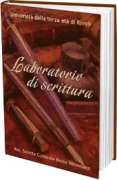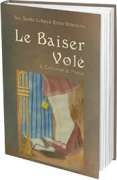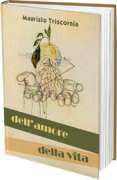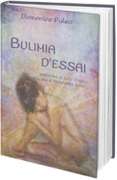PART FOUR
Markos suddenly stopped his narration. He refilled his glass with wine and after sipping it, gently passed the tip of his finger, in circular motion over the rim of the glass.
Doing this he produced a high pitch note. He drank another small sip of wine, and he again moved his finger over the rim, producing a more acute note.
“You see what I mean about musical sounds? You have to try and try until you produce the best notes, the one that is the most exhilarating to you. But I suppose, you, as a violinmaker, are in the same way trying the best you can to make your instruments release the most melodious vibrations.”
Then suddenly he talked again of his past,
“When I was ten years old, Father Tito, our Catholic priest, asked me to play the “Ave Maria” of Schubert at the Sunday Mass. I was thrilled, hearing my violin music echoing back from the church’s high naves.
“Father Tito was the one who came home one afternoon and talked lengthily to my parents. He told them that I was a born musician. He said he had some contacts that would help my entry into a musical college in Milan.
“With his goodwill I received a bursary to the Music Conservatorium of Iseo, a location not far away from Milan, in a peaceful countryside facing the calm waters of the deep lake. That’s where I spent the next six years of my life, and where I learned the proper technique practicing on my violin in long exhausting hours every day.
. “The conservatorium was originally an old monk convent on the island named Montisola and we lived secluded in our cells with sporadic contact with the other students. Visitors hardly came to the school and we seldom had contact with the outside world. We were subjected to an hard discipline and because of the hardship the majority of the students gave up their musical aspirations within the first few months. Life was harsh and only the few having dedication and determination reached the last year of the conservatorium.
“In my last year, I became close friend with another very capable boy. His convent’s cell was at the end of the corridor and often, during the time we exercised, we played the same tune, competing one against the other, exchanging in a friendly way the part of first violin.
The conclusion of our training as professional musicians was with a final performance at the school. On this occasion important people with musical connections were invited. For the final performance I left the honor of first violin to Franz, my friend.
It was after that performance that we received offers to perform in theatres around the country. On those last days Franz invited me to spend summer with his family. He said,
“In our family we have had talented violinist for many generations. During your stay with us, we can perform in front of family friends and my parents. They will be pleased to know you.”
Markos was tense. Such memories distressed him, but at the same time, he was determined to tell his story. I patted him gently on the shoulder,
“Have another drink Markos and take your time. Take all the time you need, I don’t have any commitments for tomorrow.”
Markos slowly sipped his wine, and once more, after those sips of wine, gently caressed the rim of the glass with his wet finger creating new tones. He seemed fully concentrating on doing it, but it was evident his mind was into the past.
“It was at the beginning of that summer that I had my first performance with the Vienna Symphony Orchestra at the Opera House.
“I performed with the greatest soloist of the time Maria Wallaschek, such an experience,… Unfortunately has been my only performance in a major theatre around the world. So many things happened afterwards… But let me go on with my story…
“It was September when I finally sent a telegram to Franz to let him know I had accepted his invitation to visit him and his family in Kranj.
“Kranj is in Slovenia, a short distance from the Italian border. From Gorizia, in Italy, I traveled by train to Tolmin and then an old bus took me across a narrow valley adorned with majestic pines. Franz waited for me at the Kranj bus terminal and he drove me, in his Fiat, across another valley. It took an hour’s drive to reach his home.
During the trip, for the first time, he told me his family was very rich. His father was the Count of Monterosa, and they lived in the family castle. They were descended from an old Venetian family, and had lived in the valley since the time they fought against the Turcomen’s invasion in the sixteenth century.
“The first two weeks at the Monterosa’s Castle were the best of my life. I felt that I was home, and all belonged to me, even if I couldn’t explain why. In my life I have always been a sensitive person and able to foretell the past as well forecast the future.
“Franz and I spent the morning hunting and in the afternoons we practiced on our violins. One afternoon Franz offered me a considerable sum of money to buy my violin. He seemed disappointed at my refusal. I told him that the violin had a sentimental value for me being the only thing left to me by my father. He never asked for it again but I noticed his morbid interest to possess it. .
” Franz and I used to entertain his family and other guests, after dinner. We used to play music from Corelli, Mozart, Tchaikosky and others. During the second week that I was at Monterosa Castle, one evening I notice that the Count of Monterosa was looking at my instrument with special interest and then he started to scrutinize me in a equally deep way. For the rest of the performance, the Count intensely kept studying me and he was trying to find out some kind of connections between me and the violin.
The morning after the butler approached me conveying the count’s desire to see me, and immediately I obliged,
“Good morning Sir,” I said to my host as I entered his office,
“Come in Markos, and sit down. I notice you are a good friend of my only son so I want to know more about you. At the same time I want to congratulate you on your fine performance last night. You are really talented. And your violin! You make it come alive with such sublime music. Isn’t it a Guarneri? Do you know that I did have a violin like yours? I was a good musician when I was young. Unfortunately I lost the violin. At that time I was in the Calvary, and we often changed location. My orderly who was in charge of the violin, told me one day that the violin had been stolen but I could never accept such an excuse.
“But where does your family comes from, Markos?
“I was born in Crakova, Sir, a village along the Dalmatian coast.”
“I certainly know your village. My Regiment was stationed there for sometime, and I have good memories from there. What a coincidence.”
For a short time the Count appeared perturbed, but quickly he regained control and concluded,
“I hope you will enjoy your stay at the castle, and I’m glad you are my son’s friend.”
“During the third week my life at the Monterosa Castle became difficult. Franz started to avoid me with any possible excuse he could find and we hardly saw each other for days.
Finally one morning I asked the butler if there was anything wrong with Franz. He said,
“The young count is suffering from amnesia for some time now. He isn’t very well. We don’t know how long it will take him to recover. It may be better for you to return home.”
“I can understand what you say and I’m sorry to hear such news. But before I go could you arrange a time so I can thanks him and ask permission to take my leave?”
He arranged a time in the afternoon for me to see him. I met a quite different Franz I used to know. He wasn’t friendly any longer. He was pale, upset and certainly sick. He looked ghostly and his eyes heavily marked by insomnia.
He told me,
“The butler said you want to go. Sure Markos, for what I’m concerned you can go to hell any time. You are nothing but a thief and you well know why. The violin you have belongs to me and my family. You can’t deny the evidences of the facts. That has been the reason I have invited you here to the castle just to prove to you that this violin belonged to us and had been in my family for over two hundred years. You know by now that the rose painted on the back of the case is nothing else but our heraldic crest. We are the Counts of Mount Rose. Can’t you see the evidence of the fact?”
“I’m sorry Franz. The violin is mine. And it’s very valuable to me. It’s the only object that came from my father. I will never give it to you or anybody else. No money can buy it.”
“You are even a bigger thief than your father. I will let you go with the violin for now, but know that soon it will return legally to me. Remember that. This is my last warning to you. Soon you’ll say goodbye to the violin and you’ll finish in jail.”
At this point Markos was emotional, his face was red, and his voice expressed anger. For a few minutes he lost control of himself and his hands were squeezing an imagined neck. Then he took a long sip of wine and readjusting himself kept on,
“I returned to Crakova, my village on the Adriatic. Heaviness was on my soul. When I though I had found my father, and I felt proud of he ignored me complknew who I was. I came to know I had a brother and he equally hated me. I still though possessed my violin, but for how long? According to Franz he would get it soon.
“About a month after I returned home a lawyer knocked at my door and he had some documents with him. He spoke to me saying those documents were the evidential proof. They legitimated the ownership of the violin to the Monterosa family, of the instrument that was in my possession. He gave me the option to return the violin to him, on the spot, and in this way the matter would be settled quietly, or else I would be summoned to court. The lawyer concluded that in this case the Monterosa will make sure of ruining my reputation, and my career as a musician, and my future life would be gone. They will charge me as a thief. The decisions were all mine… ”
Markos shook heavily, like someone possessed by malaria. His face was red and sweat ran from his body wetting his shirt. At this point he was a wreck driven by the fury of a cyclonic storm. His spirit had reached the limits of endurance. He could only whisper to me,
“I must go now.”
“But what happened after … Where can I meet you again?”
“You know where to find me … Come to Crakova. You’ll find me there.”
- Blog di Carlo Gabbi
- 1563 letture
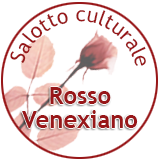
 Sostieni anche tu il nostro sito
Sostieni anche tu il nostro sito
 le nostre pubblicazioni
le nostre pubblicazioni 
